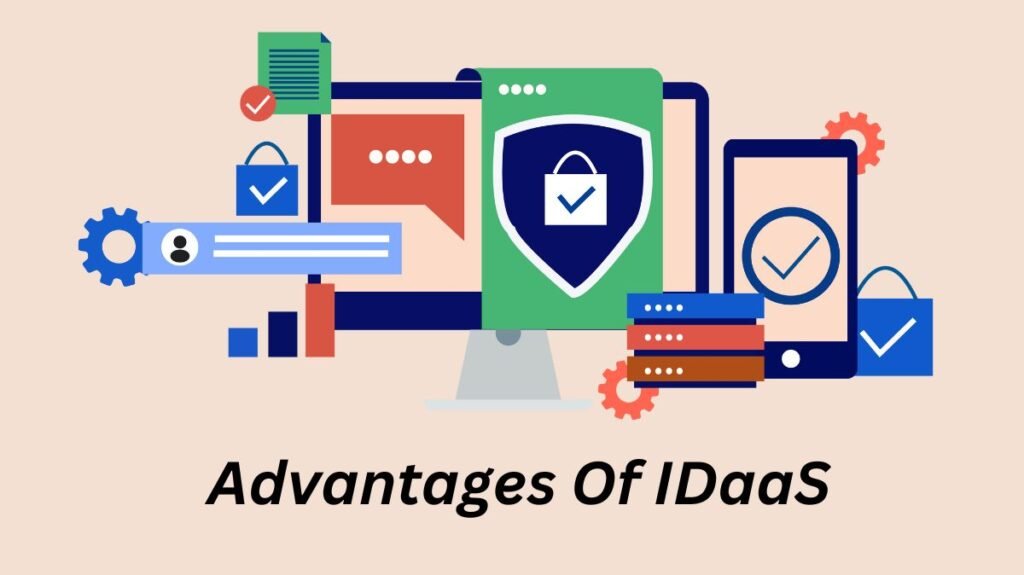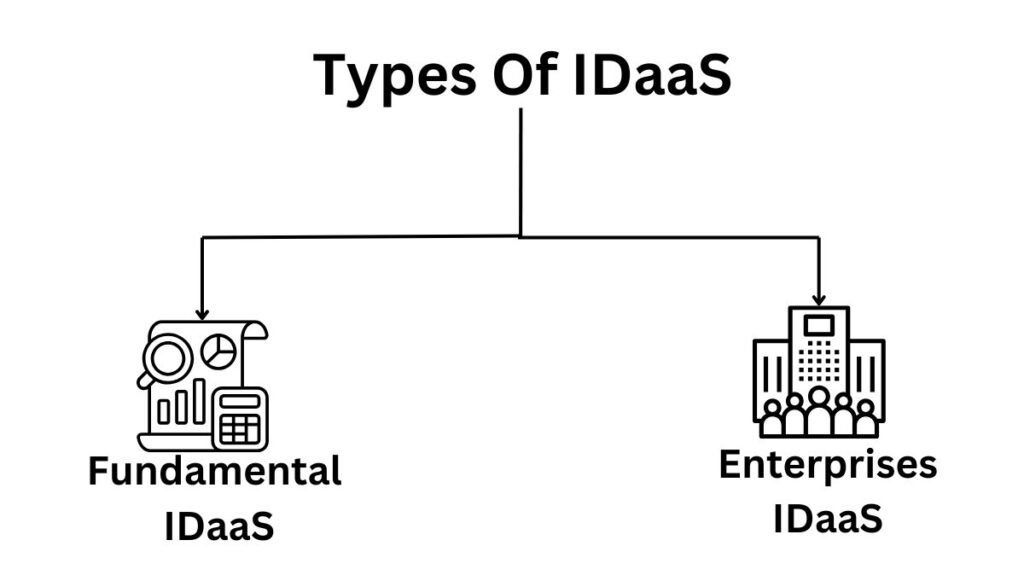Advantages Of IDaaS Identity as a Service In Cloud Computing
Contents
Advantages of IDaaS

Reduced costs
Identity as a Service(IDaaS) eliminates the need for on-premises user identification and access management software and infrastructure, saving enterprises money. Maintenance, software, and hardware expenses can drop significantly.
Enhanced security
IDaaS offers a more secure setting for controlling user access and identities. It provides sophisticated authentication techniques that can improve security and lower the chance of data breaches, such multi-factor authentication.
Scalability
IDaaS can handle a lot of users and resources because it is made to scale quickly. User identities and access are easier to maintain as firms grow.
Flexibility
Identity as a Service(IDaaS) is flexible and may be customized for a business. Integration with on-premises apps and cloud services is covered.
Management made easier
IDaaS gives businesses a centralized management interface so they can control user identities and access from one place. This makes it easier to manage user identities and access across many services and apps.
Better user experience
IDaaS provides a smooth user experience across various devices and applications. Users may access resources and apps more easily as a result, increasing user happiness and productivity.
Disadvantages Of IDaaS
Dependency on internet connectivity
Because Identity as a Service(IDaaS) depends on internet connectivity, businesses may have service interruptions in the event that the service provider goes down or there are problems with the internet connection.
Restricted customization
IDaaS could not be as adaptable as an on-premises system, albeit providing some freedom. This might make it more difficult for a company to connect the service with particular apps or customize it to fit particular requirements.
Security issues
IDaaS entails giving a third-party service provider sensitive user identification and access data. Because the service provider can be the target of cyberattacks or might not have as strict security procedures as the company itself, this creates questions regarding data security and privacy.
Regulatory compliance
When adopting IDaaS, organizations may run into problems with regulatory compliance, especially if they work in sectors with stringent data protection laws. Additional compliance steps may need to be implemented when using third-party service providers in order to protect sensitive data’s privacy and security.
Integration difficulties
It might be difficult to integrate IDaaS with current apps and systems, especially if those apps and systems weren’t created with cloud-based identity and access management in mind.
What are the Types of IDaaS?
Assuming the user has access to the IDaaS cloud solution, IDaaS offers features that are comparable to those of an identity and access management deployment on-premises from the user’s perspective. The primary distinction is that IDaaS’s cloud-based hosting by a third-party provider enables users to safely access their accounts on various devices from any location. This is accomplished by combining directory solutions, multi-factor authentication, and single sign-on.
IDaaS solutions come in a variety of forms. While some IDaaS providers just provide one component of the jigsaw (for example, a directory), others offer a more complete suite of features that include several components (for example, integrated SSO, MFA, and directory).
Apart from these various IDaaS solution configurations, distinct IDaaS categories serve various end customers. Customers, staff members, and business partners are examples of end user classes.

Fundamental IDaaS
Basic IDaaS often offers the previously described advantages and allows SSO into Software as a Service (SaaS) programs, making it ideal for small and medium-sized enterprises as well as those that were “born in the cloud.” These kinds of organizations typically use a lot of SaaS products and don’t have to worry about their own on-premises IT infrastructure. For further protection, multi-factor authentication may be employed, and user information and login credentials are stored in a cloud directory. Therefore, all the functionality required for these organizations may be provided by simple IDaaS solutions.
Additionally, basic IDaaS solutions typically feature more user-friendly interfaces, frequently featuring set-up wizards to make it easier for administrators to handle simpler administrative use cases.
Enterprises IDaaS
Because larger and older organizations almost typically have more complicated IT systems, enterprise IDaaS is more resilient. These businesses use a combination of SaaS, Platform as a Service(PaaS), Infrastructure as a Service(Iaas), and on-premises applications. Additionally, businesses usually employ IDaaS to expand their current infrastructure for IAM. Therefore, business IDaaS providers need to implement solutions that are able to:
- Connect to pre-existing user directories (such as AD) in order to authenticate users.
- To adhere to access policies, integrate with current web access management (WAM) products.
- Connect to a wide range of non-SaaS corporate apps that are housed in the business’s data centers or in third-party data centers like Microsoft Azure or AWS.
- Manage access in mobile, web, and API contexts.
A more complete solution is made possible by the connections, bridges, and integrations that IDaaS solutions for organizations offer. To better tailor solutions to the unique requirements of a company, this extra capability is coupled with more precise administrative controls.
Identity as a Service (IDaaS) Pricing
- The cost of Identity as a Service (IDaaS) might change based on the services selected, the number of users, and the supplier. Examples of IDaaS pricing include the following:
- Microsoft 365 is part of subscription packages, although it costs between $6,000 and $9,000 a month on its own.
- Up to 50,000 MAUs are free with Google Cloud, but more users incur fees.
- Personalized costs: You can get quotes from certain companies who provide personalized pricing.
- Cloud-based Identity and Access Management (IAM) solutions are offered by IDaaS. Features such as identity access log monitoring and reporting, authorization, user authentication, single sign-on (SSO), and password reset capabilities may be included.
- You can visit the provider’s website or get in touch with sales for the most precise and customized estimate.
1 Response
[…] servers are vital to cloud computing because they eliminate the need to buy, run, and maintain physical servers. You can use them alone […]